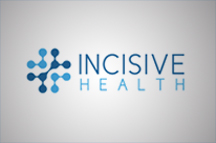Brain disorders represent one of the major health challenges in the EU and are expected to become an even greater concern as Europe’s population ages.
Against this backdrop, on 17 September Incisive Health launched the first of a series of interactive conversations where, in collaboration with Frédéric Destrebecq, Executive Director of the European Brain Council, 49 stakeholders virtually gathered to discuss the future of brain health in Europe.
Prioritising ‘silent pandemics’
The COVID-19 pandemic has helped bring out the need to address brain health disorders, both in terms of the impact that the pandemic has had on people’s mental health and because the recovery phase offers an opportunity to deal with this issue from a policy perspective, with the EU playing a bigger role as a global leader in health.
Prior to the pandemic, a lack of adequate funding and insufficient awareness of the burden of brain disorders had a tremendous impact on patients’ access to diagnosis and treatment. We now see a renewed interest in prioritising silent pandemics such as mental health and neurological diseases. One of the first concrete achievements is the global COVID-19 Neuro Research Coalition which will collaborate with the WHO: this is a call for an inclusive neuro research coalition co-created by research communities around the world, in response to the need to gather epidemiological and clinical data on the effects of COVID-19 on the nervous system.
At EU level, the Horizon Europe programme will be a useful barometer to assess whether EU programmes will reflect the actual priorities of patient communities.
Unlocking the unmet potential of brain health research
In the past few years, we have seen that the scientific community and patients’ associations have taken important steps towards highlighting the challenges and opportunities for collaboration and to advance research results for brain disorders. The European Brain Research Area is a good example as it brings together clusters of neuroscience researchers in Europe in a way that resembles the EU Cancer Mission. Another example is the study on Value of Treatment by the European Brain Council which established a strong connection with the European Reference Networks to better address patients’ needs.
But we see that fragmentation in brain health research is still impeding sustainable and productive cooperation between stakeholders and areas of research, with mental health and neurological disorders being addressed in silos. This is, for example, also the case on the WHO website, where a new section on brain health has recently been launched with neurological and mental issues still presented separately.
Another point of concern is that neurology is not yet recognised as a non-communicable disease. Acknowledging that mental and neurological disorders contribute to the global non-communicable disease burden will be fundamental to providing equitable access to effective healthcare strategies and interventions.
Connecting the dots and the right interlocutors will therefore be crucial in transforming barriers into new opportunities for a prosperous future for brain health in Europe, at policy and academic level.
Transforming innovation into actionable objectives
Digital solutions will become increasingly important for the early detection and prevention of brain disorders through the regular monitoring and elaboration of patients’ data. In order to fully unlock the potential of the digital transformation of health and care, we look forward to the EU increasingly supporting projects facilitating the study of the opportunities linked to data transfer to improve brain health.
by Sabrina Iannazzone












